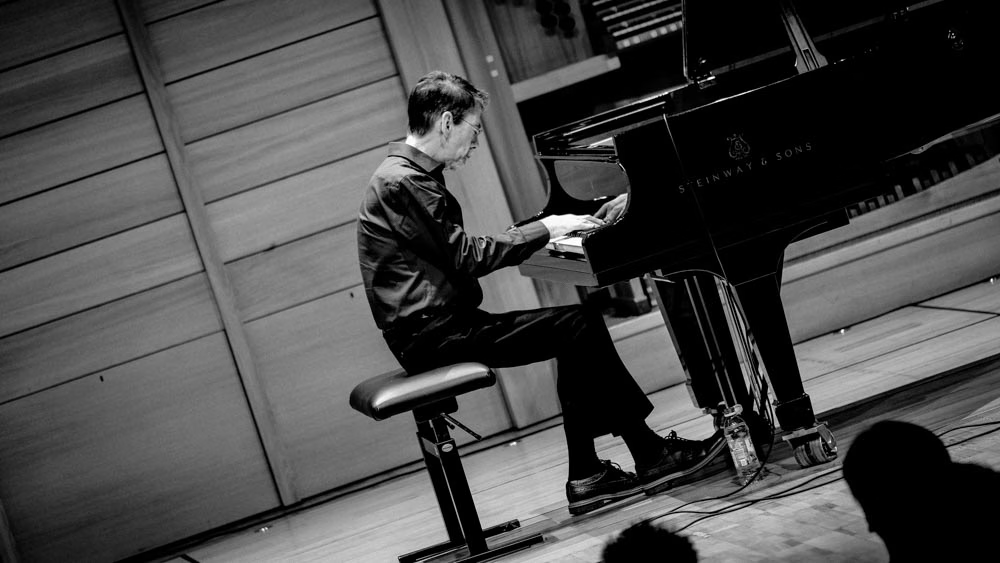Fred Hersch — Solo Piano Concert at the 16th Zagreb Jazz Festival
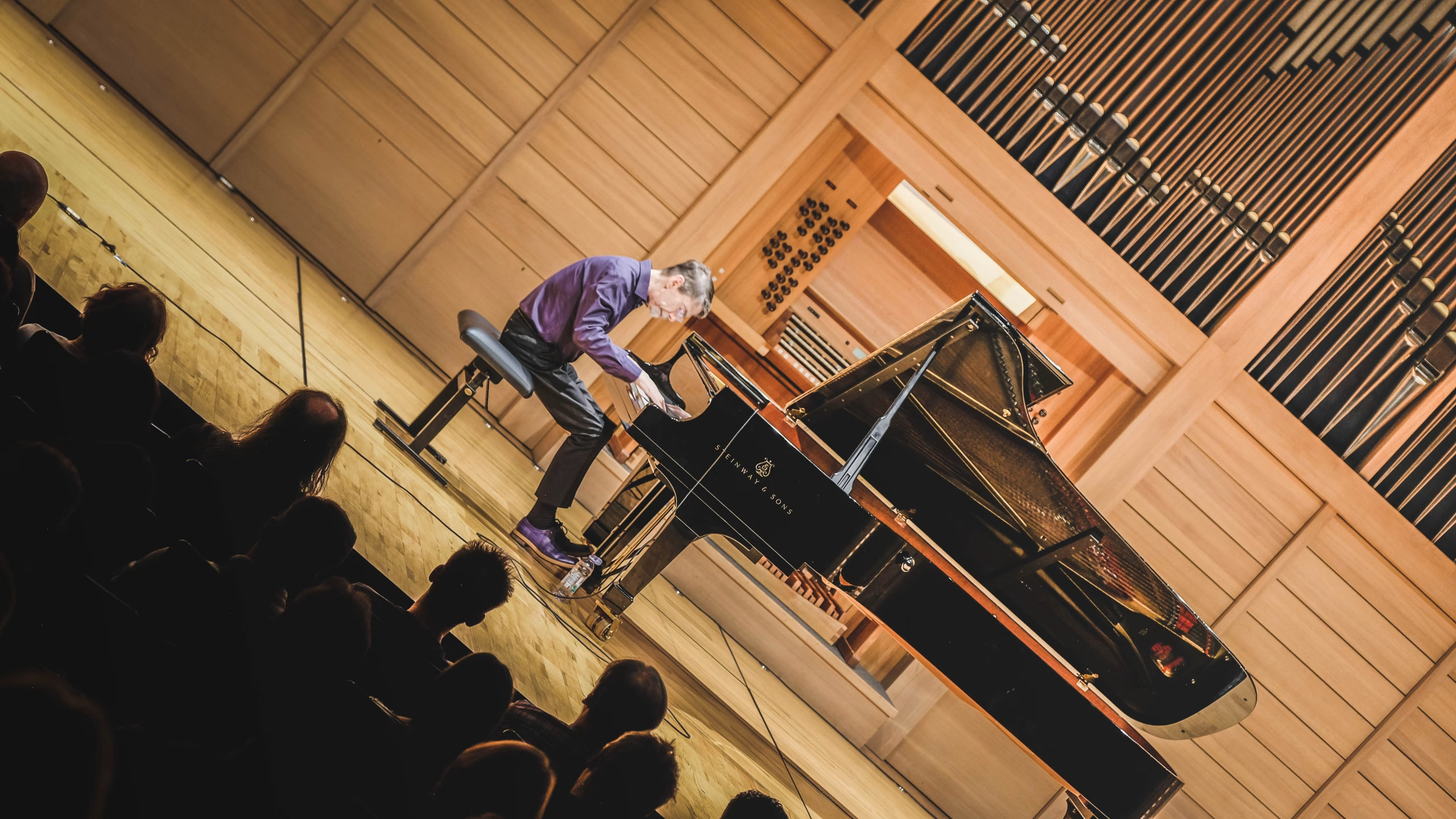
Music Academy Zagreb, October 10, 2025
A piano recital in the spirit of intimacy and mastery
It is always a rare pleasure to hear a solo piano concert in a hall with good acoustics — and when the piano is in the hands of a virtuoso like Fred Hersch, one knows immediately it will be a night to remember. Opening the 16th Zagreb Jazz Festival at the Music Academy’s concert hall, Hersch delivered an evening that spanned his own compositions, jazz standards, Brazilian classics, and singer-songwriter gems — all unified by his unmistakable touch and deeply personal approach to the piano.
The atmosphere before the concert was reminiscent of a classical recital: quiet anticipation, the stage lit softly, a grand piano standing in front of the pipe organ, awaiting one man’s dialogue with sound.
The Surrounding Green and beyond
Hersch opened the concert with The Surrounding Green, the title track of his latest ECM release recorded with Drew Gress and Joey Baron earlier this year. The piece immediately established a calm and intimate tone, his phrasing delicate yet full of intent. Without pause, he segued into Egberto Gismonti’s Palhaço, allowing the acoustic resonance of the hall to bloom. His dynamic range was breathtaking — moments of near silence made the audience hold their breath before he let the melody unfold again.
A striking contrast followed with Benny Golson’s Whisper Not, played with a powerful swing feel. Hersch’s use of dense block chords evoked the richness of a big band arrangement, while his contrapuntal improvisation blurred the line between jazz and classical piano tradition.
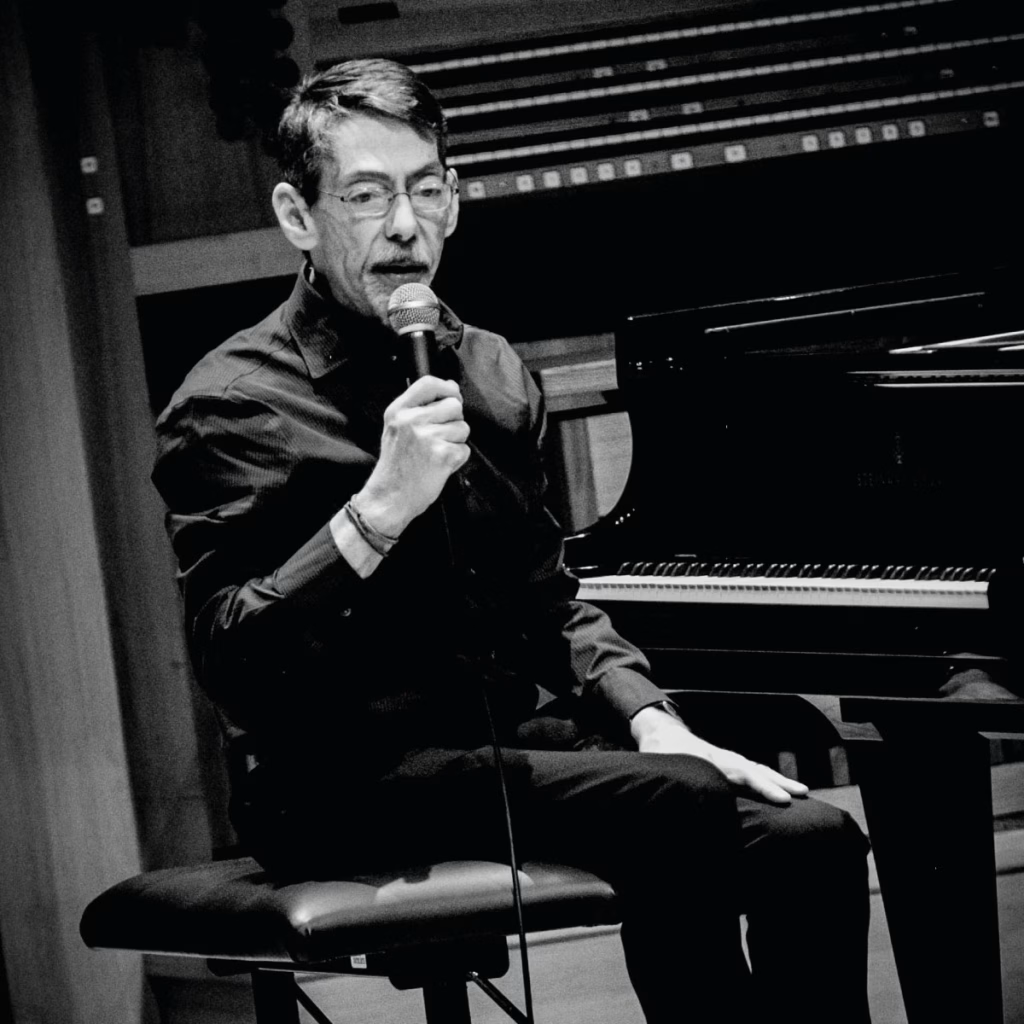
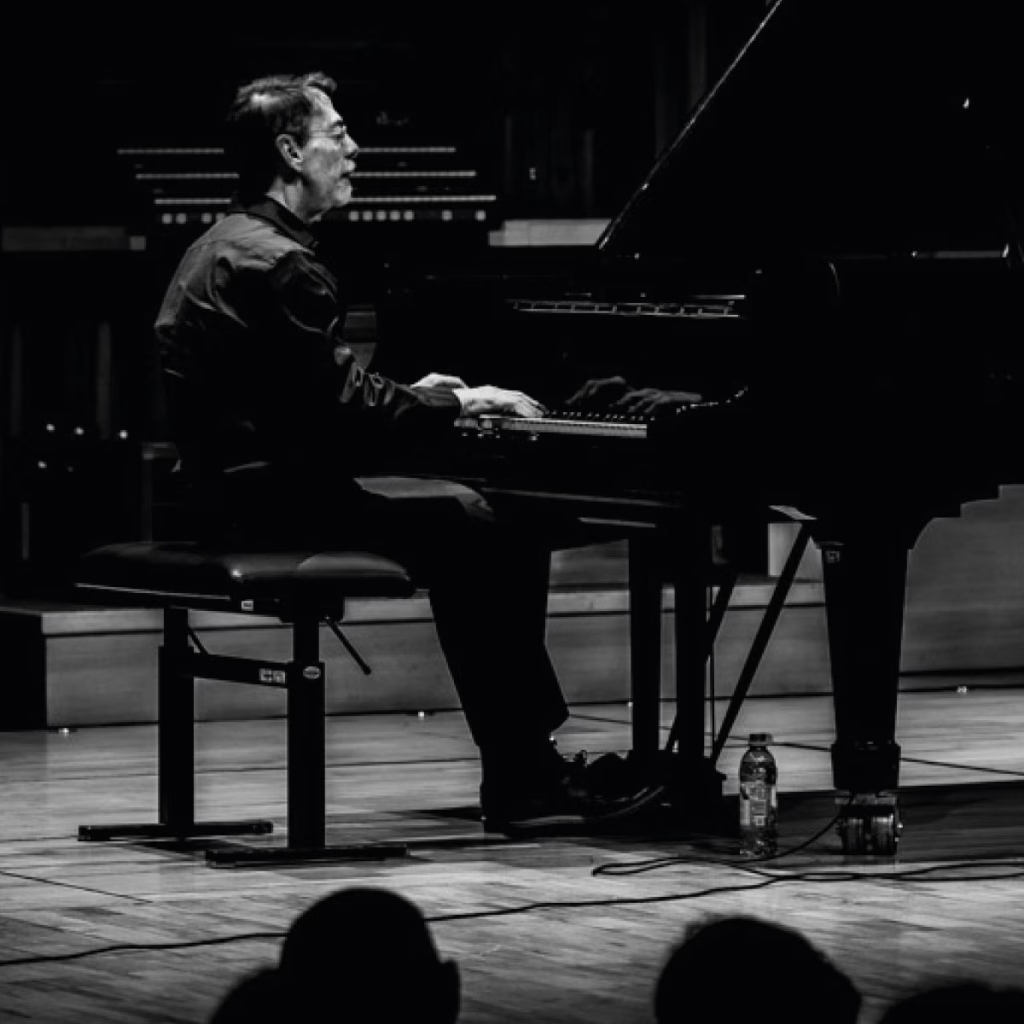
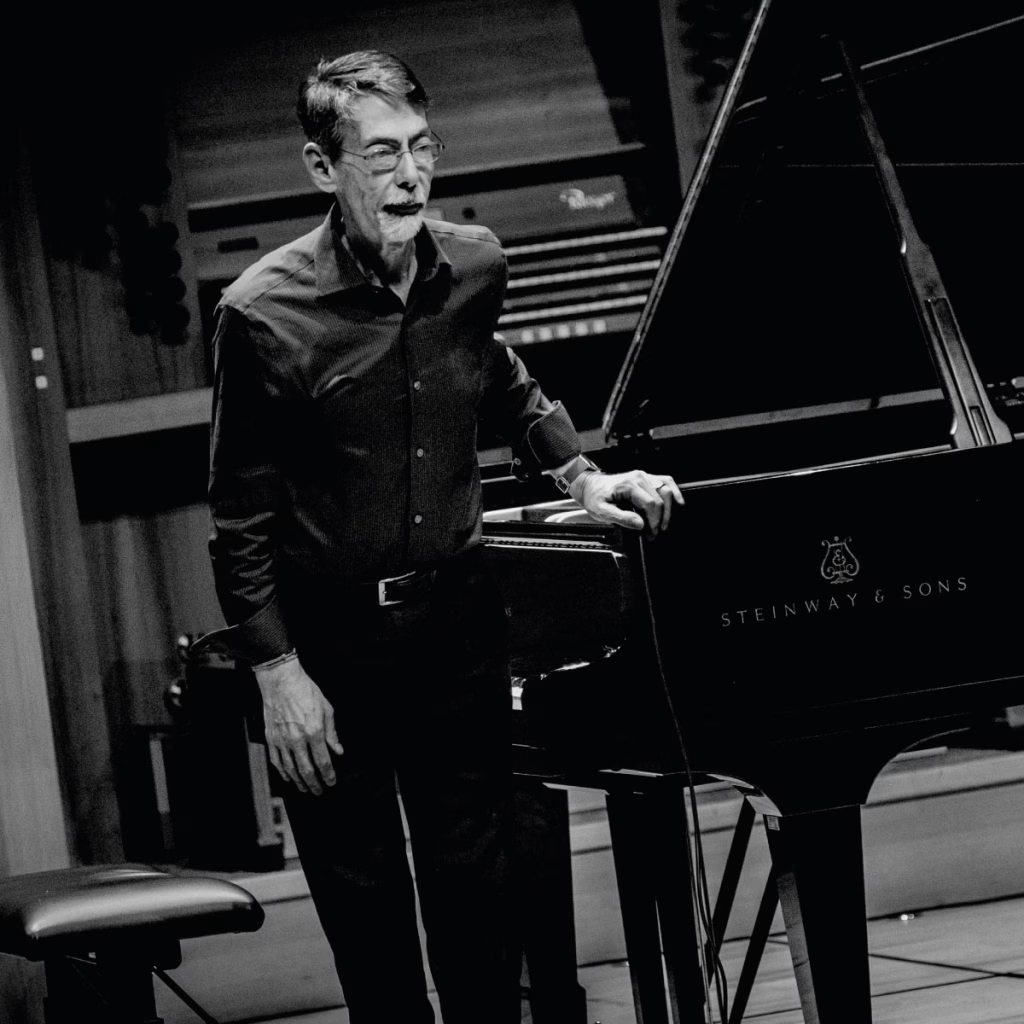
From Brazil to Personal Reflections
The program then turned to two Antonio Carlos Jobim pieces, Retrato em Branco e Preto and Brigas Nunca Mais. Hersch approached the first as a reflective ballad, intentionally stepping away from the standard bossa nova groove, before shifting into a livelier tempo for the second, revealing the rhythmic vitality beneath his elegant touch.
Visibly modest in response to each wave of applause, Hersch introduced two of his own compositions — West Virginia Rose, dedicated to his 96-year-old mother, and Down Home, a piece dedicated to guitarist Bill Frisell. The former unfolded with a lyrical, hymn-like quality, while Down Home revealed Hersch’s effortless movement between tender balladry and stride-inflected motion, always maintaining his signature melodic clarity and structural poise. A sensitive rendition of Jimmy Rowles’s The Peacocks followed, each phrase suspended with luminous restraint.
Singer-songwriters and jazz standards intertwined
Hersch then turned to two singer-songwriter classics from the early 1970s, both deeply connected to his formative years. Introducing Joni Mitchell’s My Old Man from her Blue album, he mentioned its influence on him as a high-school student. His lyrical playing made the piano seem to sing the words, bridging the worlds of jazz and songwriting. Without pause, he transitioned into James Taylor’s You Can Close Your Eyes, released the same year — 1971 — a tender pairing that underlined the emotional honesty at the heart of his artistry.
He concluded the main set with a stunning interpretation of Thelonious Monk’s ’Round Midnight, encapsulating what felt like a panoramic journey through the history of jazz piano — seamlessly blending composition and improvisation, classical and jazz phrasing, intellect and emotion.
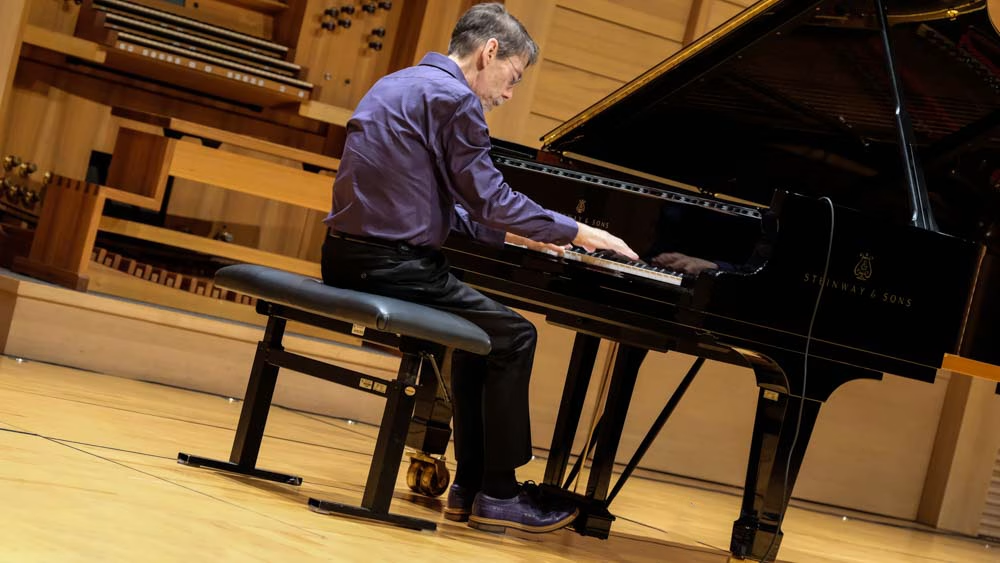
Encores of lyricism and swing
The audience was unwilling to let him go. For his first encore, Hersch played Billy Joel’s And So It Goes with unadorned beauty, allowing its melody to speak for itself — almost meditative in its simplicity. Returning once more, he humorously dedicated the final tune to “a certain resident of the White House” and launched into a jubilant After You’ve Gone. The hall erupted in smiles, claps, and even foot-tapping as he closed the evening with impeccable swing and wit.
A complete musician
Fred Hersch’s recital reminded us that true mastery transcends genre. His command of jazz and classical techniques, his sensitivity to dynamics, and his deep respect for songcraft created a cohesive narrative — a portrait of a musician who listens, responds, and transforms. Hearing an unamplified acoustic piano in such a hall was itself a gift; the nuances of touch and resonance revealed why Hersch remains one of the most important living voices in jazz piano.
